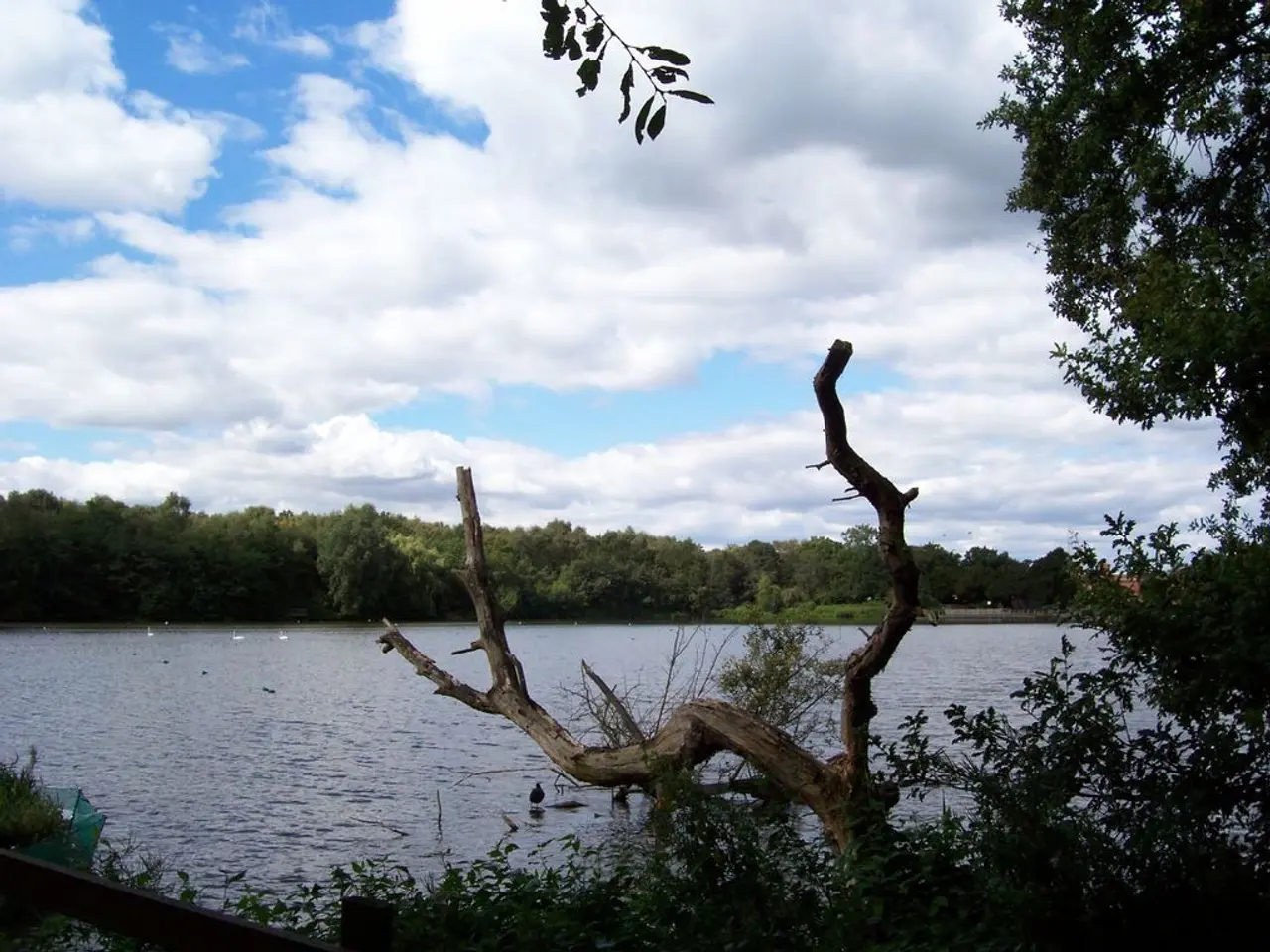Summer Experiences Revealed: AMC's 2023 Research Internship Participants Share Their Journey
In the heart of New Hampshire's White Mountain National Forest (WMNF), a unique collaboration between researchers and the public is shedding light on the impacts of environmental and climate change on the local ecosystem. This project, known as the Appalachian Trail iNaturalist project, is a community-driven initiative that harnesses the power of citizen science and cutting-edge technology to document and monitor biodiversity along the Appalachian Trail corridor.
At the forefront of this initiative is Larz von Huene, an AMC's Research Intern based at AMC Lakes of the Clouds Hut. Von Huene's work involves collecting cloud samples to measure pollution deposited into lakes, streams, and soils, providing crucial data for understanding the effects of air quality on the WMNF.
Simultaneously, Isla Lyons, an AMC Dragonfly Mercury Project Intern, is researching mercury levels in the WMNF using dragonfly larvae as biosentinels, or indicators of mercury in the ecosystem. Lyons has sampled four sites in the WMNF this summer with the help of citizen scientists' groups, forest service staff, and AMC staff, contributing to a national project testing mercury in all National Parks.
The Appalachian Trail iNaturalist project is especially significant in the context of studying environmental and climate change impacts on plant phenology. By gathering large-scale, long-term observational data on wild vascular plants and other taxa along the trail, researchers can record phenological changes such as flowering times, leaf-out dates, and fruiting periods that are sensitive indicators of environmental shifts. This data enables researchers to track shifts in species distributions and phenology that may be linked to climate variables like temperature and precipitation.
The collective observations, often supported by computer vision models that identify and classify species with increasing accuracy, help improve understanding of how climate change affects biodiversity over broad geographical scales. These contributions are vital because they provide publicly accessible, detailed biological records that scientists use to model species’ habitat preferences and predict responses to climate changes.
Moreover, the Appalachian Trail, running through diverse climates and elevations, serves as an excellent natural laboratory for studying phenological responses to environmental changes. With the help of citizen scientists, the project aims to give people a chance to learn about their surrounding environment while also contributing to local science.
Georgia Murray, AMC Staff Scientist, emphasises the importance of research interns like Shyevitch, DiNardo, and Lyons, stating, "Research interns are the boots on the ground for stream, lakes, and plant monitoring in the Maine and New Hampshire mountains."
Shyevitch, the 2023 Base Research Intern at Pinkham Notch, works with backcountry hut naturalists and citizen scientists to involve more people in AMC research. Bruce DiNardo, an AMC Scientist in Parks intern, works on the Appalachian Trail iNaturalist project, using crowdsource data from iNaturalist of understory plants throughout the entire A.T. to study environmental and climate change on plant phenology.
Bryce DiNardo's role in the project includes synthesising new iNaturalist data to update the Appalachian Trail iNaturalist Report. Citizens can contribute to AMC research by downloading iNaturalist and joining projects such as Flowers and Fauna Along the Appalachian Trail Corridor, Northeast Alpine Flower Watch, and New England Trail Nature Watch.
As the summer comes to a close, the work of these interns and the contributions of citizen scientists continue to enrich our understanding of the WMNF ecosystem and the broader impacts of environmental and climate change. The Appalachian Trail iNaturalist project serves as a testament to the power of collaborative, citizen-driven research in advancing our knowledge of the natural world.
Science plays a crucial role in the understanding and mitigation of climate-change effects on the environment, as demonstrated by the Appalachian Trail iNaturalist project in New Hampshire's White Mountain National Forest. This project, a fusion of citizen science and technology, aims to monitor biodiversity and record phenological changes in plants along the Appalachian Trail corridor for long-term observational data. Educational opportunities for lifelong learning are also integrated into the project, with initiatives like Flowers and Fauna Along the Appalachian Trail Corridor, Northeast Alpine Flower Watch, and New England Trail Nature Watch, encouraging citizens to contribute and learn about their surrounding environment.







